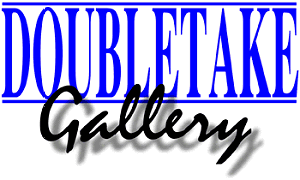Joan Miro was born on April 20th, 1893, to a goldsmith/watchmaker in Barcelona, Spain. He drew detailed landscapes as a child. When he was young he attended the La Lonja School of Fine Arts. As a young man he studied at the Art Academy of Francesco Gali. Miro was associated with and eventually was exhibited at Dalmu's Gallery in Barcelona. In 1918, he joined the “Aqrupacion Courbet” led by his future collaborator Artigas. Miro traveled throughout Europe and began associations with the important artist of the 1930's. He collaborated with the surrealists. The art of Miro is represented by almost every major art gallery in the western world. Major retrospectives have been done at MOMA and the Museum of Modern Art in L.A.
Miro began by dissecting nature. He was fascinated by the relationship between the mythological and the physical. His work is at once analytical and emotional. Miro's early painting is reminiscent of Cézanne. He becomes progressively more primitive and/naive, combining a childlike plasticity with an adultlike sensibility. On a single canvas Miro approaches and confronts the Macabre, diseased world of the 1930's and 1940's and the decorative formalism popular in that period.
Miro's vocabulary of personages, beasts, and birds developed into a symbolic language that is extended throughout his entire career. He simplifies the human form, reducing beasts and threatening allusions to a simple geometric code. The rhythm of these elements predominates Miro's most successful period, during which time he is able to communicate with and attract a huge audience. Suspended dialogues between personages and beasts, personages and ideas fill the central period of his oeuvre. The black geometric shapes like musical notion populate the canvas. They are brought into focus by the lyricism of colored shapes and spaces. The flatness of the early backgrounds is molded by his later interest in large misting modules of color. Miro's work in painting and printing is extensive. As is, his experimentation with various other mediums and found objects, collage, weaving, bronze, marble, resins, and his intensive collaboration with Artigas in ceramics.
|
|
